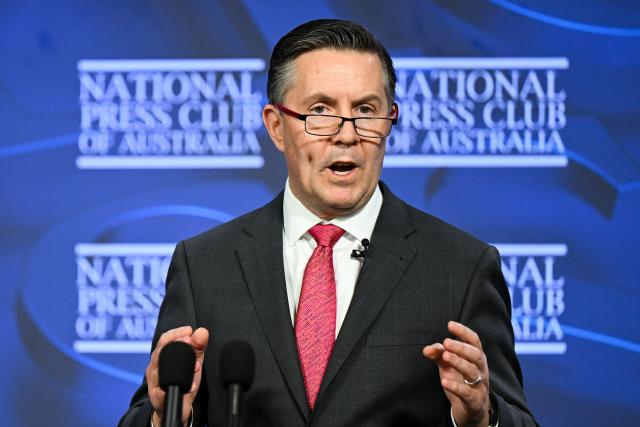A new report by healthcare directory Cleanbill has indicated that the expansion of the Bulk Billing Incentive might not see a massive uptick in fully bulk-billing clinics, but the Australian Government has been quick to disagree and slammed it as inaccurate.
Following the announcement that the incentive program would be expanded to non-concessional patients in February, Cleanbill sought to model the potential boost in fully bulk-billing clinics (100 per cent bulk billing for a standard consultation for an adult).
Cleanbill estimates that a total of 2081 GP clinics will become fully bulk billing, up by 740, while the government’s modelling has estimated a total of 4800 will be financially better off, three times as many clinics as there are that currently bulk bill and accounting for nine out of 10 GP visits.
Cleanbill predicts a consistent increase in the Outer East electorates of Casey, Aston and Deakin as well as a bigger increase in La Trobe:
Casey would rise from six bulk-billing clinics to 10 of the 40 clinics in the electorate.
Aston from five to nine of its 36 clinics.
Deakin from six to 10 of its 39 clinics.
La Trobe from 10 to 19 of its 36 clinics.
To determine if it will make sense for a clinic to bulk bill, Cleanbill used the ‘new total Medicare payment’ which consists of the Medicare rebate, the expanded Bulk Billing Incentive set to apply to all Medicare patients and the Bulk Billing Incentive Program (BBIP), which is an additional 12.5 per cent payment a GP clinic will receive for bulk billing 100 per cent of patients. Cleanbill researches and uses software to comb for all potential GP clinics nationwide each year, and calls them to ask what the fee is for a standard (accounting for 64 per cent of GP visits) or long consultation appointment.
For this latest report, if this outweighed the current fees a clinic charged for a standard consultation, Cleanbill noted that it would make economic sense for the clinic to fully bulk bill from 1 November.
The Department of Health, Disability and Ageing (DOHDA) has access to official Medicare data for more than 140,000 million GP services each year, including where the service was provided and any fees charged if the service wasn’t bulk billed, as well as Medicare data from 6500 general practice clinics enrolled in the Practice Incentives Program. The government predicts that a GP at a city practice that bulk bills every visit will earn over $5300 more than a mixed billing GP that provides the same number of services. Government data also indicates that of clinics that don’t fully bulk bill, 70.4 per cent of those clinics have bulk-billing options.
Despite this, a DOHDA brief provided to health minister Mark Butler in recent months estimated that 23 per cent of clinics are unlikely to join the program solely on financial incentives (though increased competition and consumer demand for bulk billing may provide further incentive) and the 12.5 per cent payment being split between practices and providers may risk the incentive being insufficient.
Mr Butler said Cleanbill’s report is a headline-grabbing phone poll conducted by a private company whose own website says their data is not ‘reliable, accurate, complete or suitable.’
“Their analysis is fundamentally flawed and should not be reported as accurate. Our policy is modelled by the department and based on actual Medicare data,” he said.
“We know this investment will work, because it has already worked for the patients the incentive already applies to: pensioners, concession cardholders, and families with kids,”
“When they went to the GP last year, more than nine out of 10 GP visits were bulk billed for them.”
Mr Butler refers to the information and liability disclaimer on Cleanbill’s website, a common legal measure to protect a business or entity from legal liability for information on the website. The DOHDA and HealthDirect, the government-owned healthcare directory, also have similar disclaimers in their terms of use.
Cleanbill chief executive James Gillespie said the disclaimer has absolutely no bearing whatsoever on their collection processes, and they wholeheartedly assert the accuracy of the data that they’ve published.
“We found that there were 740 GP clinics across the country for which it makes economic sense to take up the bulk billing incentive payment in full and therefore become fully bulk billing clinics,” he said.
“We also found that the economic effect of the changes would need to be between 20 and 30 per cent higher than the actual amount of the new total Medicare payment in order for 4800 GP clinics across the country to become fully bulk billing,”
“The third and final point… if you’re a patient whose GP doesn’t move to bulk billing you, your out-of-pocket costs are likely to stay the same or in some cases, go up as they have each of the last two years because your GP won’t be receiving any more money from the government for seeing you.”
Mr Gillespie’s ‘economic effect’, which is also mentioned in the Cleanbill report, could include specific factors that might allow for a clinic to become fully bulk-billing beyond the new total Medicare payment. These could include the payment being close enough to the current fees, a predicted increase in patient numbers from switching to bulk-billing, if the clinic’s patient mix has a sufficient weight of concession patients to offset any losses from switching to fully bulk billing or state-based incentives, such as New South Wales’ Bulk Billing Support Initiative.
Cleanbill estimated that the economic effect of the changes to the program would have to be an increase of between 20-30 per cent to hit the government’s target of 4800 bulk-billing clinics.
Mr Gillespie said every single GP clinic across the country is going to be doing the maths over the next couple of months and figuring out whether it makes economic sense for them.
“And as much as there’s the modelling that we’ve put out there, as much as there’s the modelling that the government puts out there, I don’t think anyone is in a position to say we 100 per cent know what every single clinic across the country is going to do, because just no one does,” he said.
“What’s going to be telling is post-1 November, once these changes come into effect and once the clinics have adjusted, it’s going to be really interesting to see the exact number of clinics that do adopt this change in becoming fully bulk-billed,”
“Cleanbill will be there every step of the way, reframing our data throughout November and December in order to make sure that in January when we release our next Blue Report, it’s accounting for this change.”
DOHDA contacted Cleanbill to offer support and shed light on their data collection methods, presented modelling to the Royal Australian College of General Practitioners (RACGP) 2025 Practice Owners Conference and will hold a series of Webinars on the Program – including information on financial modelling – during the week beginning 4 August 2025.
Departmental officials also briefed members of the RACGP, Australian Medical Association (AMA), select Primary Health Networks and state and territory governments.
Mr Gillespie and Cleanbill refute that any staff at Cleanbill have any record of being contacted by DOHDA or the Australian Government and that the entire team went through their emails to make sure nothing had been missed.







